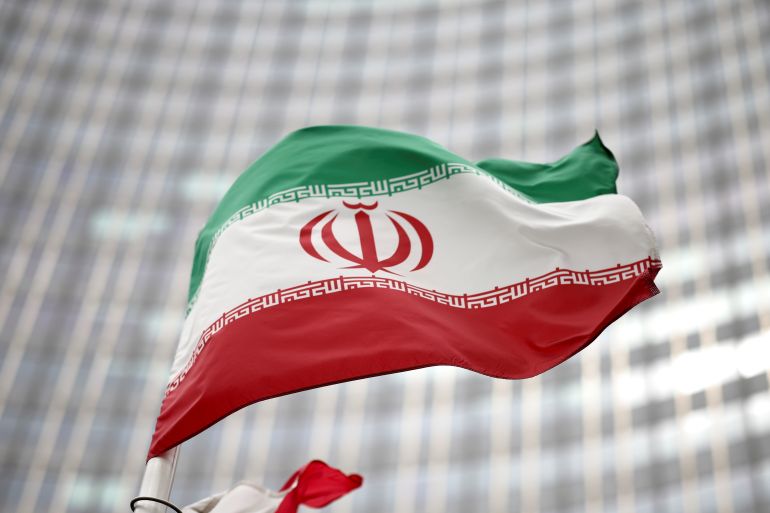US imposes new Iran sanctions amid efforts to revive nuclear deal
US measures targeting Iranian petroleum and petrochemical sales come ahead of Joe Biden’s visit to the region next week.

The Biden administration has announced a fresh round of Iran-related sanctions amid continuing diplomatic efforts to revive the 2015 nuclear deal with Tehran.
The new measures, revealed on Wednesday, target “an international network of individuals and entities” that the Department of the Treasury said facilitated the sale of US-sanctioned Iranian petroleum and petrochemical products to East Asia.
Keep reading
list of 3 itemsIran’s regional outreach tested as Turkey plans Syria operation
What you need to know about the Iran-US nuclear talks in Qatar
The sanctions come days after American and Iranian diplomats held a round of indirect talks in Qatar to try to restore the Joint Comprehensive Plan of Action (JCPOA), the multilateral agreement that saw Iran scale back its nuclear programme in exchange for the lifting of sanctions against its economy.
“While the United States is committed to achieving an agreement with Iran that seeks a mutual return to compliance with the Joint Comprehensive Plan of Action, we will continue to use all our authorities to enforce sanctions on the sale of Iranian petroleum and petrochemicals,” Under-secretary of the Treasury for Terrorism and Financial Intelligence Brian Nelson, said in a statement.
Wednesday’s measures were imposed on several individuals and firms based in Iran, the United Arab Emirates and Hong Kong that the US accused of helping with the “delivery and sale of hundreds of millions of dollars’ worth of Iranian petroleum and petrochemical products from Iranian companies to East Asia”.
The sanctions will freeze the companies’ assets in the United States, cut them off from the US financial system and bar Americans from doing business with them.
The US Department of State also issued its own Iran-related sanctions on Wednesday against entities based Iran, Vietnam, and Singapore.
“The United States has been sincere and steadfast in pursuing a path of meaningful diplomacy to achieve a mutual return to full implementation of the Joint Comprehensive Plan of Action (JCPOA),” Secretary of State Antony Blinken said in a statement.
“It is Iran that has, to-date, failed to demonstrate a similar commitment to that path. Absent a change in course from Iran, we will continue to use our sanctions authorities to target exports of petroleum, petroleum products, and petrochemical products from Iran.”
Former US President Donald Trump withdrew from the agreement in 2018 and launched a “maximum pressure” campaign of sanctions against Iran. In turn, the Iranian government started escalating its nuclear programme well beyond the limits set by the JCPOA.
President Joe Biden and his top aides say they are committed to reviving the deal through mutual compliance, but they have continued to enforce Trump’s sanctions and added dozens of their own.
As Biden prepares to visit Israel and Saudi Arabia next week, prospects of reviving the Iran deal have been dimming, with US officials warning that the window to salvage an agreement is closing as Tehran acquires irreversibly nuclear expertise.
Several rounds of talks in Vienna, starting in April 2021, failed to secure a return to the JCPOA. The negotiations had been on ice for months until they resumed in Qatar last week.
Tehran has blamed Washington’s refusal to revoke sanctions for the inability to reach a deal so far.
“Agreement is possible only based on mutual understanding & interests,” Iranian Foreign Minister Hossein Amirabdollahian wrote on Twitter on Tuesday after a phone call with European Union’s foreign policy chief Josep Borrell.
“We remain ready to negotiate a strong & durable agreement. US must decide if it wants a deal or insists on sticking to its unilateral demands.”